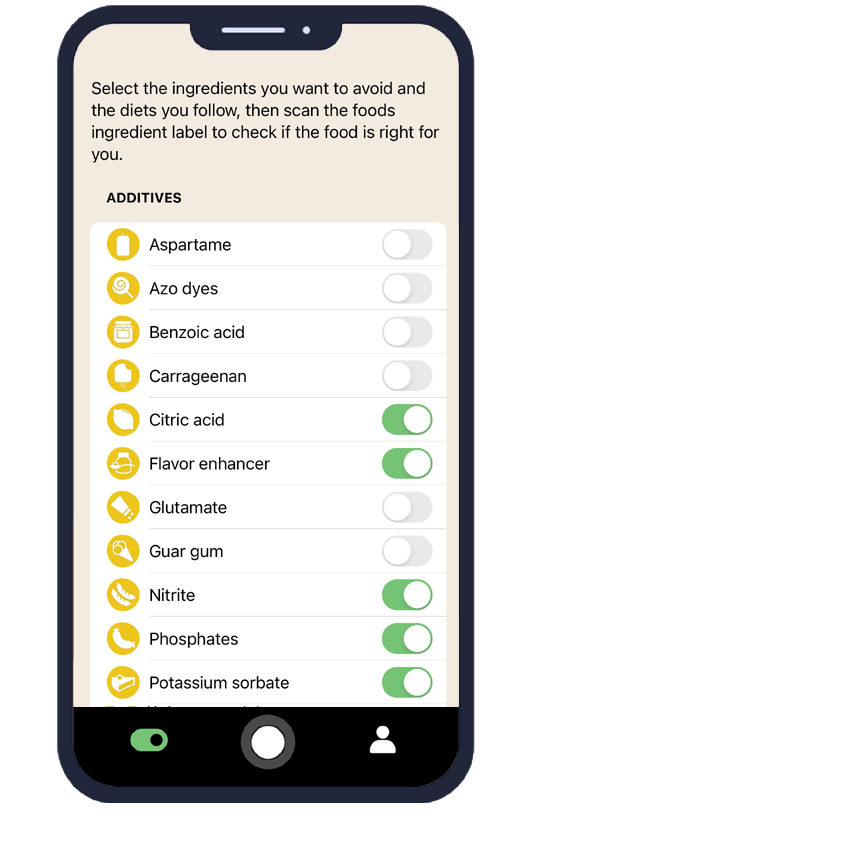Everything You Need to Know About Onion and How AI Eat This Can Help You Avoid It
Onion is one of the most common ingredients found in countless food products worldwide, yet many people need to avoid it due to allergies, intolerances, or dietary restrictions. Whether you experience digestive issues, follow specific cultural dietary guidelines, or have been diagnosed with an onion allergy, identifying this ingredient in processed foods can be challenging. The AI Eat This app revolutionizes how consumers manage their dietary needs by instantly scanning ingredient lists and alerting users to the presence of onion and other problematic ingredients.
What Is Onion and Where Is It Used in Food Products?
Onion (Allium cepa) appears in food products in various forms, from fresh and dried onion powder to onion extract and natural onion flavoring. Food manufacturers utilize onion as both a flavoring agent and a natural preservative due to its antimicrobial properties. This versatile ingredient enhances taste profiles in countless processed foods, making it essential for consumers with dietary restrictions to identify its presence.
The food industry commonly uses onion in forms that may not be immediately recognizable to consumers. Onion powder, onion salt, dehydrated onion, and onion extract are frequently listed among food additives. Some products may also contain onion derivatives or natural flavors derived from onion, which can be particularly challenging to identify without proper tools.
Common Foods Containing Onion
Onion appears in an extensive range of processed foods, often in unexpected places. Understanding where this ingredient commonly appears helps consumers make informed choices about their food purchases.
- Seasoning blends, spice mixes, and flavor enhancers
- Soups, broths, and bouillon cubes
- Snack foods like chips, crackers, and flavored nuts
- Prepared sauces, dressings, and marinades
- Frozen meals, ready-to-eat dinners, and convenience foods
- Meat products, sausages, and processed deli meats
- Vegetable blends and seasoned side dishes
Is Onion Safe? What Does the Research Say?
For the general population, onion is considered safe and even beneficial for health. The FDA recognizes onion and its derivatives as Generally Recognized as Safe (GRAS) for use in food products. The European Food Safety Authority similarly approves onion-based ingredients for food use across European markets.
Research conducted by health authorities worldwide, including the World Health Organization, supports the safety of onion consumption for most individuals. Onion contains beneficial compounds like quercetin and sulfur compounds that may provide antioxidant and anti-inflammatory benefits. However, these same compounds can trigger adverse reactions in sensitive individuals.
Risks for Specific Groups
While generally safe, onion can cause significant problems for certain individuals. People with onion allergies may experience symptoms ranging from mild digestive discomfort to severe allergic reactions. Onion intolerance, distinct from allergies, can cause digestive issues, bloating, and gastrointestinal distress in sensitive individuals.
Individuals following specific dietary protocols, such as the low-FODMAP diet for irritable bowel syndrome management, must avoid onion due to its high fructan content. Some religious or cultural dietary restrictions also require the avoidance of certain allium family vegetables, including onion.
How Does AI Eat This Help You Avoid Onion?
The AI Eat This app transforms how consumers with dietary restrictions navigate food shopping and meal planning. This innovative mobile application uses advanced artificial intelligence to scan ingredient lists instantly, identifying onion and other problematic ingredients across products in multiple languages.
Users simply point their smartphone camera at any food product's ingredient list, and the app immediately analyzes the contents. The AI technology recognizes onion in all its various forms, including alternative names, scientific terminology, and different languages. This feature proves invaluable for travelers or those shopping in international markets.
The app's personalized filter system allows users to create custom dietary profiles based on their specific needs. Whether avoiding onion due to allergies, following dietary restrictions, or managing health conditions, users can set up alerts that instantly notify them when scanning products containing problematic ingredients. This personalized approach ensures that individuals receive relevant information tailored to their unique dietary requirements.
Who Should Consider Avoiding Onion?
Several groups of people may need to limit or completely avoid onion consumption. Understanding these categories helps individuals determine whether they should be monitoring their onion intake more carefully.
Individuals diagnosed with onion allergies must completely avoid this ingredient to prevent allergic reactions. Those with onion intolerance may choose to limit consumption to manage digestive symptoms and improve overall comfort. People following low-FODMAP diets for digestive health management need to avoid onion due to its high fermentable carbohydrate content.
Certain medical conditions may require onion avoidance or limitation. Some individuals with gastroesophageal reflux disease (GERD) find that onion triggers symptoms. People taking specific medications, particularly blood thinners, may need to monitor onion consumption due to potential interactions with their treatment regimens.
Tips for Maintaining an Onion-Free Diet
Successfully avoiding onion requires vigilance and practical strategies for everyday food choices. Reading ingredient labels carefully remains the most important step, but this process can be time-consuming and sometimes confusing due to alternative ingredient names.
Focus on whole, unprocessed foods whenever possible, as these naturally contain fewer hidden ingredients. Fresh fruits, vegetables (excluding onions), plain meats, and simple grains provide safe options for those avoiding onion. When purchasing packaged foods, look for products specifically labeled as onion-free or suitable for restricted diets.
Develop relationships with local restaurants and food establishments that understand dietary restrictions. Many restaurants can accommodate special requests when given advance notice. Consider preparing more meals at home, where you maintain complete control over ingredients and can ensure onion-free cooking.
Utilize technology like the National Institutes of Health dietary resources and mobile applications to support your dietary management. The AI Eat This app particularly excels at making ingredient identification quick and reliable, reducing the stress and time involved in food shopping.
Conclusion
Managing dietary restrictions involving onion doesn't have to be overwhelming or limit your food enjoyment. Understanding where onion appears in food products, recognizing its various forms, and utilizing modern technology makes avoiding this ingredient much more manageable. The AI Eat This app provides an invaluable tool for anyone needing to monitor their onion intake, offering instant ingredient identification and personalized dietary support.
Whether you're dealing with onion allergies, following specific dietary restrictions, or simply choosing to avoid this ingredient for personal reasons, having reliable tools and information empowers you to make confident food choices. Download AI Eat This for free testing today and experience how technology can simplify your dietary management while keeping you safe and healthy!

70 filters
With over 70 filters, you can easily avoid certain ingredients and follow your dietary preference.

Paleo

Pescetarian

Ultra-processed food

Vegan







































































